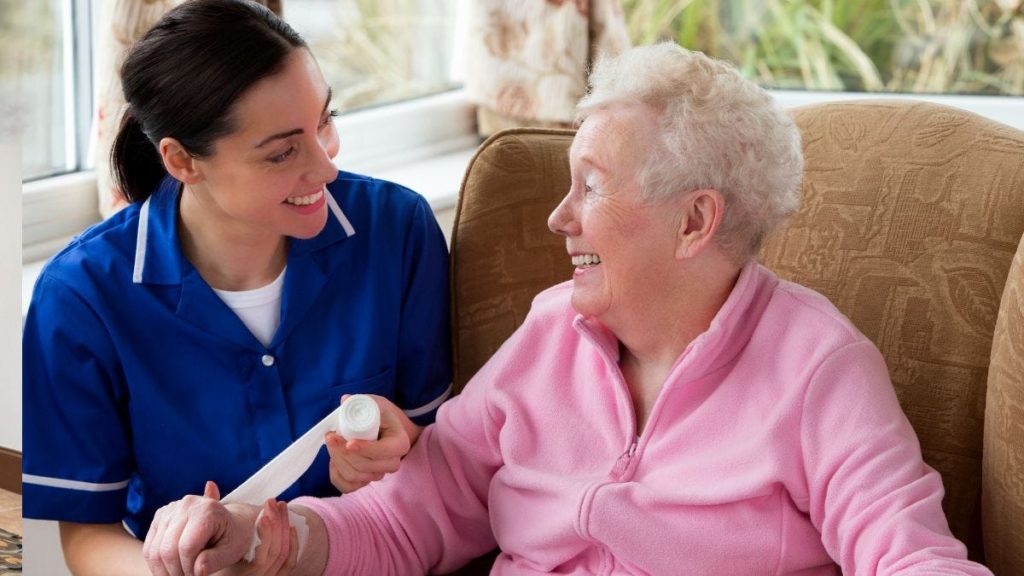Supported independent living in Melbourne is an excellent platform for disability that centralises itself in enabling such people and offering them the opportunity to lead enhanced lives. The structure of supported independent living in Melbourne allows individuals to live in their homes comfortably while receiving specific care that they require to prevent them from living isolated lives while getting the help they need.
Enhancement of Life Skills
Supported living also has the primary purpose of alleviating the ability of the residents to lead practical lives. This approach is founded on the paradigm that acquiring and learning proper behaviours during daily activities such as cooking, cleaning, and managing money is an essential process of human growth to make one more independent. Balancing in supported living environments, these daily activities are greeted respectively, and support workers help those who need assistance.
This active participation is necessary since it closes the gap and assists people in gaining confidence and attaining relevant skills that help manage daily life. Training in life skills extends beyond mere household tasks. It also includes navigating public transportation, managing personal health care, understanding safety protocols, and interacting with community services.
Such comprehensive training ensures that residents can look after themselves and their living spaces and are well-prepared to venture confidently into the broader community.
Social Interaction and Community Engagement
Supported living also significantly emphasises social interaction and integration into the community. This is achieved through professional social activities, community development projects, and recreational activities that enhance resident interactions. The mentioned activities contribute to constructing a social circle and promote communication development, thus mitigating loneliness.
Residents are encouraged to explore personal interests and hobbies, which can lead to participating in local clubs, sports teams, or arts groups. These engagements offer valuable opportunities to interact with people from various backgrounds, fostering a diverse and supportive community network.
Pathways to Employment
The other important activity in supported living is employment because it allows the residents to fend for themselves financially and gain self-esteem. Most supported living streams engage with local businesses and vocational rehabilitation centres to develop employment opportunities matching residents’ skills and preferences.
Such relationships can entail a particularly tailored program that allows learners to gain knowledge and skills required for specific occupations, learn how to behave at the workplace and in other organisational manners, and cope with the demands of the given occupation.
Support is provided continuously, even after employment, to ensure individuals can handle their roles effectively and continue to grow professionally.
Personalised Support Plans
Based on the chosen support, implementing supported independent living relies on creating the individual support needs assessment. NDIS providers in Melbourne develop these plans through the collaboration of the person, their family, and professional carers in a way that captures all the people’s needs, dreams, and goals in life.
These underscore that the development of such operational plans should be periodically done to be relevant and realistic, especially with changes in an individual’s circumstances or the achievement of specific goals. This dynamic planning supports the process of defining the actions that can fit the current position of the individual and their goals.
Health and Wellbeing
Supported living prioritises the health and wellbeing of residents, ensuring comprehensive care. Regular health assessments, remedy control guides, and access to specialist healthcare services are provided to deal with any bodily health worries. Recognising the significance of mental fitness, counselling and therapy services are comfortable supporting citizens’ cognitive and emotional wellbeing.
This holistic technique promotes standard wellbeing, permitting people to thrive in their dwelling environment. Residents can feel assured that their health and wellbeing are monitored and supported by a devoted group of specialists.
Safe and Accessible Living Environments
Supported living homes are thoughtfully designed to ensure safety and accessibility for all residents, accommodating a wide range of needs. Essential features such as ramps, stairlifts, and accessible bathrooms are standard, allowing individuals to navigate their surroundings with ease and confidence. Additionally, these homes’ layout prioritises personal space and communal areas, fostering a sense of community.
Residents can socialise, engage in group activities, and build meaningful relationships, enhancing their overall quality of life. This inclusive design promotes independence while ensuring a supportive environment for everyone.
Family Involvement and Support
Family members play a crucial role as integral partners in the supported living model. The interactions and the updates are scheduled regularly or as often as necessary to create a team-like setting where families are updated on the progress of their loved ones. This constant interaction enables families to participate in crucial decision-making and encourages them to fight for their relatives’ requirements.
Such inclusion enhances the overall support system, ensuring individuals receive personalised care. Lastly, it provides the families with connection and confidence concerning the quality of care of their relatives.
Final Words
Supported living in Melbourne offers a comprehensive support system beyond primary care. For people with disabilities, it provides a safe place to learn to live independently, interact with the community, get a job, and get individual care and attention. Through personalised care, training, and support, this method fosters the creation of a supportive community.
Regarding supported independent living arrangements, individuals with disabilities do more than merely exist; they lead genuine and productive lives as active members of society.

